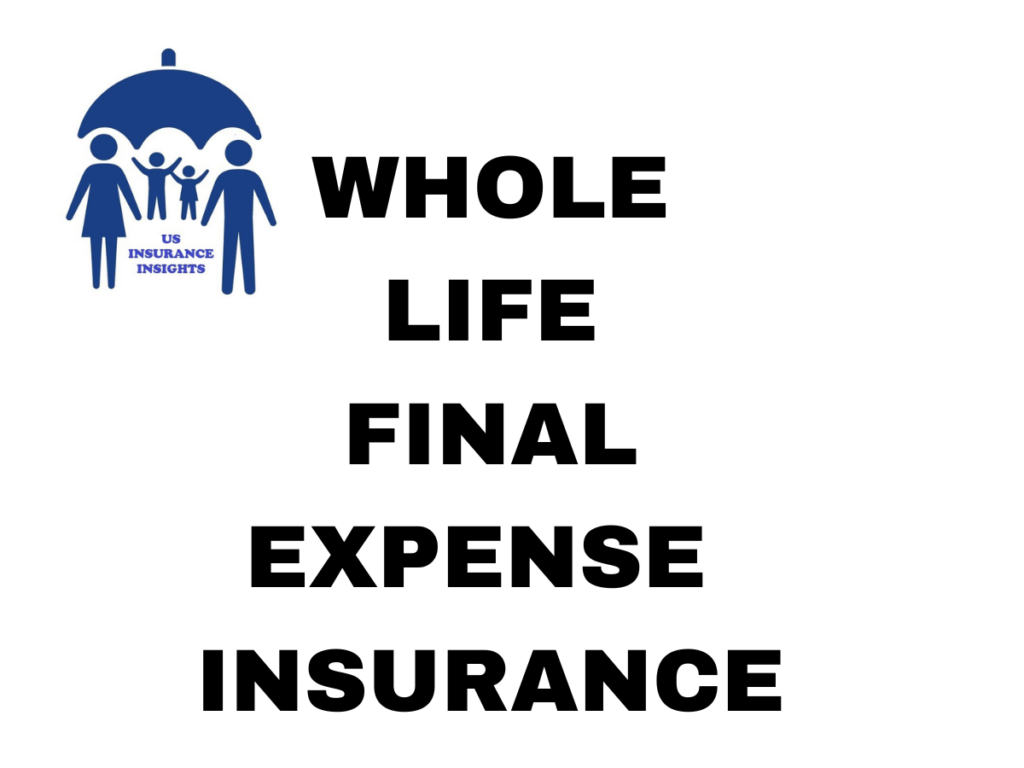Planning for the future often brings a mix of emotions. While many focus on saving for retirement, others might overlook an equally critical aspect — ensuring their loved ones aren’t burdened by unforeseen expenses when they pass away. This is where whole life final expense insurance steps in, offering a solution that is simple, reliable, and highly practical.
Let’s dive into what makes whole life final expense insurance an excellent choice for those looking to leave their family financially secure.
What is Whole Life Final Expense Insurance?
Whole life final expense insurance, also known as burial insurance or funeral insurance, is a type of permanent life insurance specifically designed to cover end-of-life expenses. Unlike traditional life insurance policies, this coverage is tailored for smaller benefit amounts ranging from $5,000 to $50,000, making it more affordable and easier to qualify for.
The primary goal of this insurance is to cover:
- Funeral costs
- Burial or cremation expenses
- Outstanding medical bills
- Small personal debts
This policy ensures that your family is not left scrambling to pay for unexpected costs during an emotionally challenging time.
Why Do You Need Final Expense Insurance?
The average funeral in the U.S. costs between $7,000 and $12,000, according to the National Funeral Directors Association. This amount doesn’t include additional expenses such as headstones, flowers, or a memorial service. Without proper planning, these costs can quickly add up, creating unnecessary stress for your loved ones.
Here’s a real-life story that underscores the importance of planning ahead:
When Maria’s father passed away unexpectedly, her family was unprepared for the financial burden that followed. Between the funeral costs and settling unpaid medical bills, Maria had to drain her savings and take out a personal loan. If her father had a final expense insurance policy, these costs would have been covered, sparing the family from financial hardship.
Key Features of Whole Life Final Expense Insurance
- Lifetime Coverage: As long as you pay your premiums, your policy remains active for life.
- Fixed Premiums: Unlike other insurance types, your premiums never increase, making it easy to budget.
- Cash Value Component: Over time, your policy accumulates cash value, which you can borrow against in case of emergencies.
- Simplified Underwriting: No medical exam is typically required; most policies only ask a few health-related questions.
- Quick Payout: Beneficiaries often receive the payout within days, ensuring timely financial support.
How to Choose the Right Final Expense Insurance
Finding the best policy involves careful consideration. Follow this step-by-step guide to make an informed decision:
1. Determine Your Coverage Needs
Estimate the total amount you’d like to leave behind to cover funeral costs, outstanding bills, and any other end-of-life expenses. If you’re unsure, use an online funeral cost calculator to get a rough idea.
2. Compare Providers
Look for insurers with good reputations, competitive premiums, and excellent customer service. Read reviews and consult resources like AM Best to check the financial stability of insurance companies.
3. Understand Policy Terms
Review the fine print to ensure there are no hidden fees or limitations. Ask questions such as:
- Does the policy offer level premiums?
- What’s the waiting period?
- Are there restrictions based on age or health?
4. Work with a Licensed Agent
An insurance agent can help you navigate the complexities and find a policy tailored to your needs. Many agents offer free consultations, so take advantage of their expertise.
Benefits of Choosing Whole Life Final Expense Insurance
- Affordable Premiums: Policies are budget-friendly, especially for seniors on a fixed income.
- Peace of Mind: Knowing your family won’t bear financial stress during an already difficult time.
- Flexibility: Funds can be used for any purpose, not just funeral costs.
- No Expiration: Unlike term life insurance, this policy doesn’t expire as long as premiums are paid.
Common Questions About Final Expense Insurance
1. Who is eligible for final expense insurance?
Most providers accept applicants aged 50 to 85. Some even offer policies for younger individuals.
2. Can I buy a policy for someone else?
Yes, you can purchase final expense insurance for a parent, spouse, or other loved one, provided you have their consent.
3. What happens if I outlive the policy?
You can’t “outlive” a whole life policy. It remains active as long as you continue paying the premiums.
4. What’s the difference between term life and final expense insurance?
While term life insurance provides coverage for a specific period, final expense insurance lasts your entire lifetime and is focused on smaller benefit amounts.
Final Thoughts: Is Whole Life Final Expense Insurance Right for You?
Investing in whole life final expense insurance is a compassionate and practical decision that ensures your family won’t be burdened by unexpected costs. By planning ahead, you’re giving your loved ones the gift of financial security and peace of mind during a challenging time.
Take the first step today by researching policies that fit your needs. Remember, a small investment now can make a world of difference for your family later.


1 thought on “Whole Life Final Expense Insurance: Your Key to Peace of Mind”